The Health Benefits of Coffee Alternatives
In recent years, coffee alternatives have become almost as common as the coffee they are replacing. It seems like every year, a new coffee alternative becomes available.
There are now so many coffee substitutes on the market, the difference between them has become somewhat confusing. This article aims to demystify popular coffee replacement options by explaining each option and exploring its potential health benefits.
Why Do People Replace Coffee?
Due to its popularity, the health benefits of coffee have been well researched. According to a recent Scottish comprehensive review published in BMJ concerning coffee consumption and health, it seems that coffee is generally considered safe. A Polish study published in the International Journal of Molecular Sciences in 2020 states, “Extensive research shows that coffee consumption appears to have beneficial effects on human health.”
The question becomes if people like coffee, and it is considered safe to drink, why are so many people looking to replace it? There are still several reasons people may choose a coffee alternative to replace the coffee cup in their morning routine.
First, there is caffeine sensitivity. Many coffee substitutes contain less caffeine or are caffeine-free, making them a good option for people with sensitivity to caffeine.
Next is sleep disruption and jitters. The high caffeine content in coffee can cause some people to experience side-effects such as sleep cycle disruption and jitters, a feeling of anxiousness. Many people would like to keep their morning routine intact while eliminating the side-effects they are experiencing.
Caffeine is also considered addictive. A U.S. academic survey of addiction professionals published in the Journal of Caffeine Research concluded that “The majority of addiction professionals believe that caffeine withdrawal and dependence disorders exist and are clinically important.”
There is no clear consensus on whether coffee causes heartburn, although many people believe that coffee can cause heartburn. After conducting their study and collating figures from previous similar studies, a 2013 Japanese study published in PLoS One found no association of coffee consumption with several heartburn causes.
Some people don’t like the taste of coffee but would still like a morning beverage to wake them up and feel more alert.
After reading the reasons people choose to use coffee alternatives, it is clear that regardless of the benefits of coffee, there is still a definite need for alternative options.
This wide range of reasons also makes it easier to understand why there are so many options available. People have different reasons for replacing coffee, which means that given the consumer’s needs, one substitute may suit their purpose better than another.
Keeping in mind the specific reason you are looking for a coffee substitute while searching for a coffee alternative can help you find the right option.
What Alternatives are Available?
Here is a list of the eleven popular coffee substitutes discussed in this article:
- Chicory
- Matcha
- Golden Milk
- Yerba Mate
- Chai
- Chaga Mushroom
- Cacao
- Roasted Fig
- Dandelion Root
- Garbanzo Beans
- Barley
Each of these options is discussed in detail below.
Chicory
What is Chicory?
Chicory is a common flowering plant that is most recognizable by a light bluish purple-hued bloom (although the bloom is more rarely pale pink or white). Although the other parts of the plant have many uses, the chicory root is roasted and used as a coffee substitute.
Chicory’s history dates back to ancient Egypt, but it was popularized in France in the19th century. Today, the chicory coffee is still popular in New Orleans, where it gained popularity during a coffee shortage caused by the American Civil War.
Some research published in the Journal of Investigational Allergology & Clinical Immunology points to possible allergic reactions, and it is recommended that pregnant women avoid chicory.
Chicory is often blended with other coffee substitutes to gain a full flavor.
Why is Chicory used as a Coffee Substitute?
Since chicory is common in many places globally, it has been used historically in times of coffee shortage. The taste is often described as more nutty and woody than coffee-like, but many people enjoy it as a caffeine-free alternative to coffee.
No research was located to suggest that chicory aids in providing energy or focus, but one Taiwanese study published in the Journal of Traditional and Complementary Medicine non-committally stated, “We have demonstrated the possibility that chicory root extract can modulate hyperglycemia and bowel movement.” They also suggest that “the effective use of chicory root extract could be beneficial for lifestyle-related diseases.”
Unlike some of the more rare options on this list, chicory is inexpensive, making it a good alternative for those on a budget.
Chicory and Weight Loss
Chicory is a good source of fiber inulin. Inulin has been found by one Italian university study published in the European Review for Medical and Pharmacological Sciences when paired with certain probiotics to increase the body’s ability to manage weight.
Pros and Cons of Chicory
Pros
- Widely available
- Caffeine-free
- The nutty, woody taste
- Relatively inexpensive
Cons
- Can cause allergic reactions
- Not recommended for pregnant women
How to Make Chicory Coffee
Chicory coffee can be brewed in the same way as regular coffee, using a coffee machine, french press, or pour-over method.
This coffee substitute is often taken on hikes because you can brew it by putting the grounds directly into a mug with boiling water. The result is a bit gritty, so you may want to save this method for a camping trip.
Cost and Where to Buy
Many local grocery stores now carry chicory root coffee, and a small bag can be purchased for less than ten dollars. Chicory root coffee is also widely available online.
If you’re ready to make healthy habits stick, Noom can help. Noom uses psychology to help you make healthier choices, so you can reach your weight loss goals for good. Right now, there’s a free trial offer you can use to see how it works.
Matcha
What is Matcha?
Matcha, translated from Japanese, combines Ma “rubbed or ground” and cha means “tea.” Accordingly, the word matcha essentially means “ground tea.” All tea, black, and green come from the same tea plant, Camellia sinensis. It is the careful way the tea leaves are cultivated and harvested that make Matcha special and more nutrient-rich.
There are three grades of matcha recognized outside of Japan:
- Ceremonial grade: used in tea ceremonies and Buddhist temples
- Premium grade: contains young tea leaves from the top of the tea plant.
- Cooking/culinary grade: slightly bitter due to various factors, such as time and place of harvest.
The premium-grade is the type that is most suitable for daily use.
Why is Matcha used as a Coffee Substitute?
There is less caffeine present in Matcha, and the caffeine it does contain releases at a slower rate. This means that the caffeine effect will be more steady and long-lasting for those looking for a beverage to help them stay alert.
Matcha is also a good coffee substitute for people who prefer tea over coffee. Matcha green tea contains high levels of antioxidants, which are well documented as having numerous health benefits. According to a 2020 Japanese study published in Foods, of antioxidant properties, matcha green tea was found to have the highest amount of antioxidants of any tea.
Matcha and Weight Loss
Research regarding Matcha green tea and weight loss vary. A comprehensive review of food supplements for weight loss performed in 2020 by Italian scientists and published in Nutrients goes so far as to recommend ingesting the epigallocatechin derived from green tea as part of a weight management program.
Interestingly, the same study also recommends a daily portion of coffee.
Pros and Cons of Matcha
Pros
- Widely available
- Can be prepared hot or cold
- Research on matcha is well documented.
Cons
- Taste and appearance differ from coffee.
- The cost of quality matcha can be high.
How to Make Matcha
It is possible to buy matcha tea bags and steep them as you would regular tea. However, for a more authentic cup of matcha, the following simple method will work:
- Sift the powder into a bowl
- Mix in a small amount of hot water
- Blend the powder and water with a whisk
- Pour the blended tea into a cup.
- Enjoy
Cost and Where to Buy
Many matcha types are widely available, and inexpensive green tea can usually be found at a local grocery store. However, the quality of matcha can differ significantly, and the price variance reflects that.
It may help to think of matcha in a similar way to wine, you may be able to find a tasty, inexpensive brand, but you can expect to pay a high price for a premium product.
Golden Milk
What is Golden Milk?
Originating from India’s traditional Ayurvedic medicine, golden milk has been gaining popularity in recent years. The Indian name for golden milk is “haldi doodh.” The bright yellow drink gets its color from mixing turmeric and other spices with dairy or plant-based milk.
In North America, many things, such as coconut milk or spices, are added to make golden milk. There is nothing wrong with these modern versions, but the authentic version is simply made up of turmeric and milk, perhaps with a little honey added.
Why is Golden Milk used as a Coffee Substitute?
The desire for a warm cozy drink seems to be what brings people to use golden milk as a coffee replacement. Other than their temperature, golden milk and coffee share little in common.
People looking for a coffee replacement to provide alertness and energy should look elsewhere. However, a review by the Department of Nutrition at Michigan University, published in Foods, found that the turmeric in golden milk, more specifically the substance curcumin, has been confirmed to have anti-oxidant and anti-inflammatory properties.
Further, at a low dose, curcumin has health benefits for people that do not have diagnosed health conditions.
Golden Milk and Weight Loss
Turmeric, one of the main ingredients of golden milk, contains the substance curcumin, which has been shown in European Reviews for Medicinal and Pharmacological Sciences to improve weight loss by increasing weight loss from 1.88 to 4.91% for those already on a diet.
Keep in mind that golden milk’s active substance is also available in a more concentrated supplement form.
Pros and Cons of Golden Milk
Pros
- Contains turmeric
- Many people enjoy the taste
- It can be made at home
- Caffeine-free
Cons
- Taste and appearance differ from coffee
- Will not provide alertness of coffee
How to Make Golden Milk
To make the most basic golden milk, you will need:
- ½ cup milk of your choice
- 1 tsp Turmeric
In a saucepan, heat the ingredients together and simmer for at least ten minutes.
Common optional ingredients include cinnamon, black pepper, coconut butter, ginger, and honey.
Cost and Where to Buy
Recipes to make your own golden milk can easily be found with a quick internet search. If you are looking to buy golden milk, there are plenty of options available online for a range of prices between $15 – $50.
If you are looking for a simpler weight-loss program that can be customized to your needs, you may want to consider Noom. We love that this system offers personalized meal plans, 1:1 coaching sessions, and health tracking tools to make it that much easier to lose weight and keep it off. Noom is currently has a free trial offer for a limited time, so check it out today!
Yerba Mate
What is Yerba Mate?
England has tea, North America has coffee, and South America has yerba mate. Yerba mate is a beloved beverage in South America. Many South Americans gather regularly to drink the mate together. The taste is said to be reminiscent of some kinds of green tea and is quite bitter.
Derived from the yerba mate plant, this tea-like beverage is made by drying the leaves and then steeping them in hot water.
Recent scientific studies of yerba mate find it to have beneficial properties. Specifically, a 2020 Polish study published in the Annals of Agricultural and Environmental Medicine “confirmed that this beverage shows some beneficial health effects.” Although many of the substances found in yerba mate are thought to be beneficial, there is also an acknowledgment that more study is needed regarding possible carcinogens.
Why is Yerba Mate Used as a Coffee Substitute?
Yerba mate does contain caffeine, but at a lower dose than that found in coffee. This means that, just like any other caffeinated beverage, it will provide some level of energy.
Fans of this beverage claim that Yerba Mate gives them the alertness of coffee without the sleep disruption or jittery side effects.
Yerba Mate and Weight Loss
A study published in Planta Medica from the Department of Nutrition and Food Sciences, University of Navarra, in Pamplona, Spain, found that yerba mate had the effect of weight loss when tested on animals.
Pros and Cons of Yerba Mate
Pros
- Lower caffeine than coffee
- It contains a high level of antioxidants.
- Studies suggest a correlation with weight loss.
Cons
- Taste differs from coffee.
- Inconclusive research on overall health benefits vs. disadvantages
How to Make Yerba Mate
Yerba mate is uniquely consumed by sipping through a metal straw from a mug-like cup called a gourd. The traditional brewing method is unique. The container is filled ⅔ full of yerba mate, which is pushed to one side of the vessel to form a little slope.
The mate is then moistened with just a touch of cold water. After inserting the straw (called a bombilla), warm water is added until it reaches ¾ of the way up the mound of yerba mate.
If you see someone drink mate traditionally, you will notice that they may walk around with the same cup for hours, sometimes all day. They will resteep the same cup of mate multiple times as needed.
Cost and Where to Buy
Yerba Mate is available at specialty health food stores as well as online.
A one-pound bag will cost you around $15.
Chai
What is Chai?
Chai, or Masala Chai, is a mixed spice tea originating from India. Many variations of chai exist as the spices the tea consists of can be blended in many ways.
Common ingredients of chai include:
- black tea
- cinnamon
- ginger
- cloves
- cardamom
- star anise
- fennel
Many of the spices found in chai have been studied and found to provide some health benefits. For example:
- Ginger is well known to relieve nausea.
- Cardamom has anti-inflammatory properties, according to the Journal of Medicinal Food.
Why is Chai used as a Coffee Substitute?
Chai does contain caffeine, although the dose is lower than that found in coffee. This makes chai a good choice for a substitute if your goal is lowering the chance of sleep disruption or anxiousness.
Like coffee, the sweetness of chai can be adjusted by adding a preferred sweetener to taste. Although chai does not have the same flavor as coffee, many people find it to be delicious.
Chai and Weight Loss
The cinnamon found in chai provides some health benefits, including the possible promotion of weight loss. Scientists from the Faculty of Agro-Based Industry and Human Genome Centre, School of Medical Sciences, Universiti Sains Malaysia, studied the multifaceted plant.
The study, published in Evidence-based Complementary and Alternative Medicine, found that cinnamon is a natural antimicrobial agent full of antioxidants and may have further health benefits to be substantiated through more clinical studies.
Like many of the other coffee alternatives in this article, it is good to remember that the amounts of nutrients found in these beverages may not be the optimal amounts to have any effects. Also, additions such as sweeteners can counteract beneficial effects.
Pros and Cons of Chai
Pros
- Highly customizable
- Popular taste
- It can be made at home.
- It may have health benefits.
Cons
- Taste differs from coffee.
- Benefits can differ depending on spice blend, additives, and quality of ingredients.
How to Make Chai
The ingredients of chai are mixed and then boiled in milk and water to steep.
Cost and Where to Buy
Chai is widely available and can even be homemade. A fancy chai latte at a coffee shop might cost in the range of 5-10 dollars. Buying chai online or at the store can be hit or miss. There are inexpensive brands on the market, but they may not give true chai flavor depth.
It may be tempting to grab a chai tea or chai tea latte from a coffee shop every morning, but those extra calories add up. Try tracking with Noom, and you’ll soon see what we mean. Make sure to check out their free trial offer if you are ready to change your approach to weight loss for once and for all, Noom is worth a try!
Chaga Mushroom Coffee
What are Chaga Mushrooms?
A woody fungus, the scientific name for Chaga mushroom, is Inonotus obliquus. It is most commonly found in the birch forests of the Northern Hemisphere.
The Chaga mushrooms are often mixed with other mushrooms, like reishi, lions mane, and cordyceps to make Chaga coffee. The mushrooms are dried and ground into a coffee-like powder.
Why are Chaga Mushrooms used as Coffee Substitutes?
In recent years Chaga has gained some popularity because it contains adaptogens. A Swedish study published in Pharmaceuticals on the effects of adaptogens explains that adaptogens are natural substances designed to help the body deal with stress.
If further explains, “adaptogens exert an anti-fatigue effect that increases mental work capacity against a background of stress and fatigue, particularly intolerance to mental exhaustion and enhanced attention. Recent pharmacological studies of several adaptogens have provided a rationale for these effects also at the molecular level.” While this sounds beneficial, it should be remembered that similar results can come from incorporating mushrooms into a regular diet.
Another reason for Chaga coffee’s popularity seems to be that it actually tastes like coffee while containing less caffeine.
Chaga Mushroom and Weight Loss
While studying the continuous effects of Chaga intake, Japanese Researchers found a possible link between Chaga and weight loss in one study published in Heliyon.
Pros and Cons of Chaga Mushroom Coffee
Pros
- Taste is reportedly similar to coffee.
- Preliminary studies point to health benefits.
- Caffeine-free
Cons
- Not well researched
- Similar benefits from incorporating whole mushrooms in the diet
- Higher cost than other options
How to Make Chaga Coffee
It is recommended to use a french press. Place 2-3 teaspoons of Chaga powder in the press per cup of water. Add water, wait for a few minutes, and brew as per normal coffee.
Some people also just add a teaspoon of Chaga to their regular coffee.
Cost and Where to Buy
Due to the difficulty of harvesting Chaga mushrooms, the starting price for this type of coffee substitute is around $25. It is available online from a variety of sellers.
Cacao
What is Cacao?
Along with chocolate, cacao is one of the cacao bean products – from which chocolate originates. Don’t confuse this with the Cocoa powder used for baking or hot chocolate that you find in your grocery store.
Cocoa powder also comes from the cacao bean. However, it has been processed with high heat, and this extra processing results in any beneficial properties being reduced.
Cacao is the part of the cacao bean that is used to create a coffee substitute. The brewed drink has the aroma of dark unsweetened chocolate. Although some drinkers like the taste, others find it to be weak in comparison to coffee.
Why is Cacao used as a Coffee Substitute?
Unlike the substance that carries caffeine in coffee, the caffeine carrying substance present in Cacao does not cause insomnia or anxiety.
This seems to support the claim that this coffee replacement would assist with focus and energy without coffee’s side-effects. A study published in Nutrients related to the health benefits of cacao confirms this claim.
Cacao and Weight Loss
Although some studies suggest that cacao may assist in weight loss, a 2013 review of the benefits of chocolate/cacao published in the Netherlands Journal of Medicine points out that because cacao is bitter, sugar or sweetener is often added.
Additionally, a large amount of cacao is required to trigger any weight loss effect. These two factors led the scientists to conclude that excess calories would probably counteract any weight loss effect that cacao may have in food form.
Pros and Cons of Cacao
Pros
- Low, non-sleep disruptive caffeine
- Provides coffee-like effects
Cons
- Can have a weak taste
- Availability is not consistent.
How to Make Cacao
A french press is recommended to make cacao:
- Place two tablespoons of ground cacao beans in a French press.
- Stir in 1 cup of boiling water, and
- Wait for 5 to 7 minutes before pressing.
Cost and Where to Buy
Currently, the cacao powder used to make brewed cacao can be bought online, but the price and availability fluctuate frequently.
Keeping your health in check is easier with a program like Noom With daily goals, recipe ideas, educational lessons, and tracking tools, Noom makes it easy to make healthy choices and lose weight along the way. Make sure to check out their [promoted_product_link_offer], which is only available for a limited time!
Roasted Fig Coffee
What is Roasted Fig Coffee?
Figs are a fruit that is most popular in Mediterranean countries. Roasted fig coffee or “coffig” is made from roasted and ground figs. Coffig is brewed in the same way that regular coffee is.
In Indian medicine, fruits are used as a mild laxative, as per research published in Evidence-Based Complementary and Alternative Medicine.
The fruit also contains a high level of antioxidants, according to BMC and Complementary Medicine. Antioxidants are free radicals that defend your cells against damage by free-radicals. Free-radicals aren’t necessarily a bad thing unless they get out of balance.
This often occurs because the Western diet does not contain many antioxidant-rich foods. Interestingly, regular coffee is considered to be one of the best sources of antioxidants in a Western diet, according to the Journal of Nutrition.
Why is Roasted Fig used as a Coffee Substitute?
According to reviews by drinkers of roasted fig coffee, it does have similar qualities to coffee. It is dark and looks like coffee when brewed. The roasted figs’ aroma differs from that of coffee, taking its flavor from the dried and roasted figs. Some reviews find the taste pleasant, and others seem to dislike it.
Roasted Fig coffee does not contain caffeine to appeal to those looking for a caffeine-free coffee substitute.
Roasted Fig and Weight Loss
No conclusive scientific studies could be found to determine roasted figs’ relationship with weight loss.
Pros and Cons of Roasted Fig Coffee
Pros
- Caffeine-free
- It looks similar to coffee.
Cons
- Limited research available
- More expensive than coffee
- Supply is inconsistent
- It may be challenging to brew correctly.
How to Make Roasted Fig Coffee
Simply prepare roasted fig coffee as you normally would any coffee or tea.
Cost and Where to Buy
“Coffig” is available to purchase online from Amazon or directly from www.coffig.com.
At the time of writing, a 1 lb “value bag” was available for $45.95.
Dandelion Root
 What is Dandelion Root?
What is Dandelion Root?
In some places, the yellow flowers of the dandelion are so common that they are considered weeds. Dandelions have many practical uses and are one of the easiest plants to forage. Dandelions can be an excellent addition to salads or sauteed as a side dish. They can even be brewed into dandelion wine or used in desserts such as dandelion shortbread.
Dandelion coffee is made by chopping, drying, and roasting the roots of the dandelion plant. Interestingly, this beverage is steeped like tea rather than brewed like coffee.
Why is Dandelion Root used as a Coffee Substitute?
The beverage made from dandelion root has a resemblance to coffee in both appearance and taste. Some drinkers report that experimentation is needed to know how much mix to use for the best result.
Dandelion Root and Weight Loss
A 2013 review published in EXCLI Journal found that plants like the dandelion root could potentially be used to treat obesity.
To paraphrase this review by Mexican scientists, “There is little information on the anti-obesity effect of dandelion; however, just recently and despite not being the main objective, another study found that dandelion reduced the weight of overweight mice.” Although this is promising, more study is needed to substantiate this claim.
Pros and Cons of Dandelion Root
Pros
- Caffeine-free
- Similar look and taste to coffee
- Contains antioxidants
Cons
- Expensive to purchase
How to Make Dandelion Root Coffee
To make dandelion root coffee, place water and dandelion root in a saucepan. After bringing the ingredients to a boil, simmer for five minutes, then strain the drink into a mug through a fine-mesh strainer.
Some optional additions include chicory root, cinnamon, honey, coconut milk, or heavy cream.
Cost and Where to Buy
Many online guides can teach you to make your own dandelion coffee if you feel up to expending the effort.
If you would prefer to purchase dandelion root coffee or tea, the average cost of a starter pack can range up to $50, although this price fluctuates according to some consumers.
Whether you’re looking to cut caffeine, or just want something a little different, coffee substitutes can be helpful in reaching your weight loss goals. And for an extra push, a program like Noom can help. With personalized meal plans, individual coaching, and more, Noom gives you everything you need to be successful. To give it a try, take a look at their [promoted_product_link_offer].
Garbanzo Bean Coffee
What is Garbanzo Bean Coffee?
Garbanzo beans are also known as chickpeas. Most people are most familiar with chickpeas in the form of hummus, a delicious multipurpose dip. However, chickpeas can also be used in salad, curry, or roasted as a snack.
Whether you call it garbanzo bean coffee or chickpea coffee, this coffee substitute is made by roasting and grinding the beans. A percolator is used to brew the ground beans with water, creating a coffee-like beverage.
Why are Garbanzo Beans used as a Coffee Substitute?
When made in a percolator as recommended, the resulting beverage appears coffee-like.
Chickpea coffee is caffeine-free, making it a good option for those looking to avoid all caffeine.
Garbanzo Beans and Weight Loss
A 2013 study on the nutritional value and health benefits of chickpeas and hummus and published in Nutrients states, “emerging evidence suggests that chickpea and hummus consumption has benefits beyond providing basic nutrition.”
The same study had this to say about weight loss “emerging research suggests that chickpeas and hummus may play a beneficial role in weight management and glucose and insulin regulation” It is important to recall that this study did not include research on chickpeas in the roasted and ground form used in chickpea coffee.
Pros and Cons of Garbanzo Bean Coffee
Pros
- Caffeine-free
- Homemade option available
- Source of fiber
Cons
- The store-bought version is more expensive than coffee
How to Make Garbanzo Bean Coffee
Although this coffee alternative can be brewed in a coffee maker, it is recommended to use a percolator, French press, or boil and strain method.
Cost and Where to Buy
This is another option where online guides to make your own version are available if you are ambitious.
Otherwise, chickpea coffee is available online for just under $20. Keep an eye on shipping costs, as those can add to the price.
Barley Coffee
 What is Barley Coffee?
What is Barley Coffee?
Originating in Italy, where it is called “orzo,” barley coffee is made from roasted ground grains. It was traditionally considered a coffee substitute for children.
Often you will find barley coffee available as part of a mix with one of the other options explored in this article, chicory.
Why is Barley used as a Coffee Substitute?
Barley coffee resembles regular coffee and has the same earthy, nutty taste, minus the bitterness.
Barley coffee is caffeine-free, making it another good choice for those looking to avoid caffeine.
Those looking to up the intake of soluble fiber in their diet may also consider this an option.
Barley Coffee and Weight Loss
According to a study in the Journal of Food and Drug Analysis, “Barley has an assortment of phytochemicals with the potential to impact human health.” More research is needed.
When discussing the role barley plays in managing weight, the same study found, “Oxidative stress, which plays an important role in the pathology of … obesity, can be moderated by phytochemicals present in barley.”
What are phytochemicals? They are chemical compounds produced by plants. Those in barley are thought to have health benefits, but generally, there are thousands of phytochemicals present in plants. Scientists are just starting to scratch the surface of the research needed to explore both the positive and negative properties of phytochemicals fully.
Pros and Cons of Barley Coffee
Pros
- Inexpensive compared to other coffee substitutes
- Caffeine-free
- Lacks bitter coffee taste
- Good source of soluble fiber
Cons
- Too much may result in bloating.
How to Make Barley Coffee
Barley coffee can come in various forms, including plain roasted barley in a bag, packets, or as an instant mix.
Depending on the form of the barley coffee, you can:
- Use a regular coffee maker.
- Use the traditional espresso maker method.
- Mix the instant coffee powder with water
- Use a saucepan and mix two tablespoons of barley mix into a half-liter of water. After letting the water come to a boil, remove it from the heat, let the barley settle, and then filter the liquid into a coffee cup.
Some people choose to add a sweetener, but as barley coffee lacks coffee’s bitterness, it is best to keep this to a minimum.
Cost and Where to Buy
Prices for barley coffee vary greatly. A quick search online may garner results in the $20 range for a small bag. However, barley coffee is available in most supermarkets in the coffee alternative section at a much lower price.
The Last Word on Coffee Alternatives
Although some recent research points to positive benefits being associated with several of these coffee substitutes, many of them lack the extensive scientific research to back their claims. In many cases, obtaining similar nutrients from a food or supplement source may have the same or better effect.
Even with so many options available, a one-size-fits-all coffee replacement does not exist. Specific alternatives will fulfill a desire to remove caffeine but will not give the same alertness that coffee provides. Other coffee alternatives may provide the health benefit you are searching for but fail to deliver on taste. Budget can also be a factor in your decision making. It is essential to consider your personal preference, health issues, and goals when deciding if a particular coffee alternative is the right choice for your lifestyle.
As with all herbal or medicinal products, it is best to consult with your health professional to determine which coffee substitute is right for you. In particular, pregnant women should exercise caution and discuss these coffee alternatives with their doctor before use.
Improving your quality of life involves a lot more than coffee alternatives, which is why a program like Noom can help you. This clinically-backed weight-loss system uses health tracking, meal plans, food logging, daily goals, and more to help you reach your health and wellness goals. If you are ready to give this program a try, check out the free trial offer available from Noom for a limited time.
The Health Benefits of Coffee Alternatives Questions & Answers
- Recent:
The primary benefit of not drinking coffee is that it can reduce or eliminate the effects of caffeine dependence. Other advantages include improved sleep, increased concentration, and a reduced risk of certain health conditions such as heart disease and diabetes. Additionally, avoiding caffeine may help to improve overall mental health.

Summer Banks has researched over 5000 weight-loss programs, pills, shakes and diet plans. Previously, she managed 15 supplement brands, worked with professionals in the weight loss industry and completed coursework in nutrition at Stanford University.


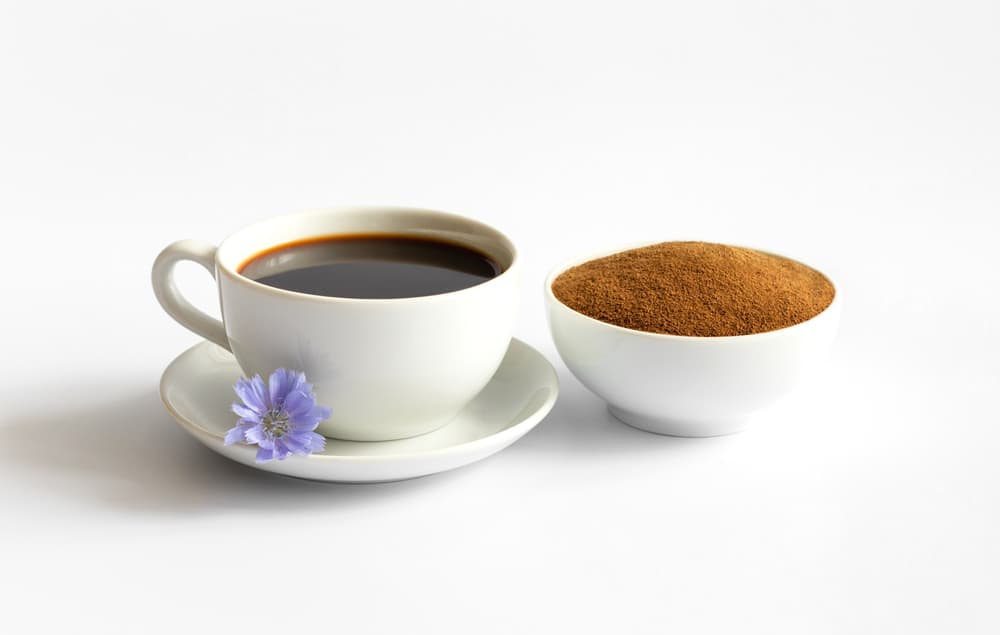
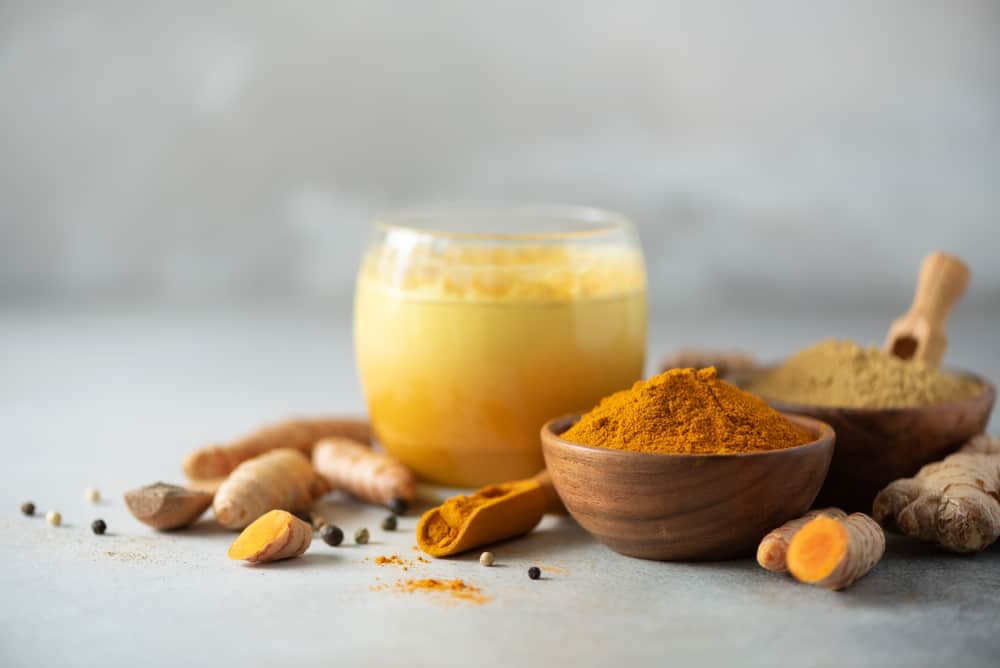
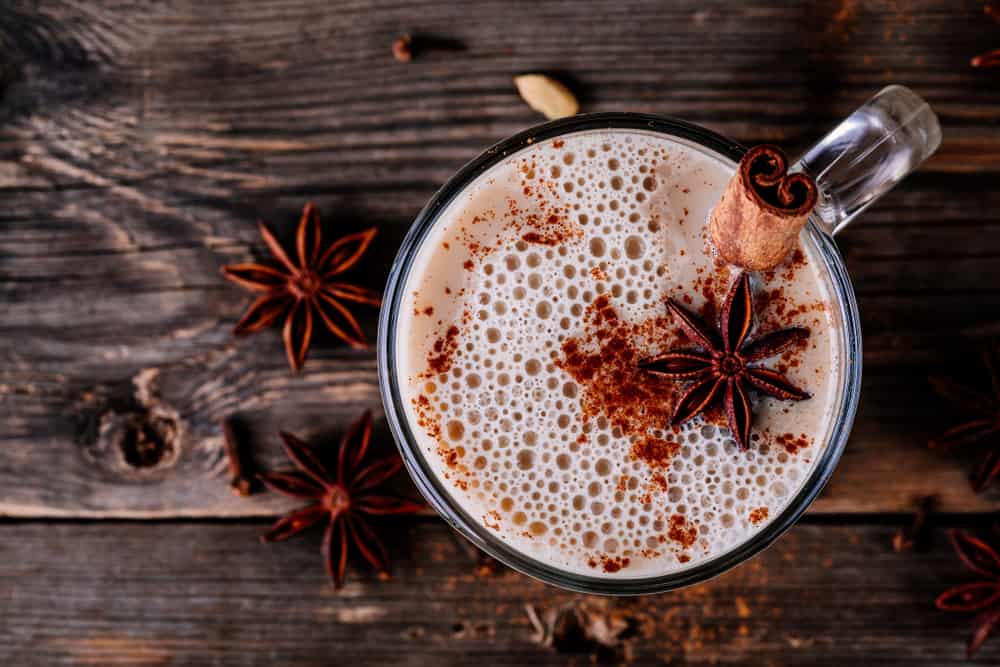
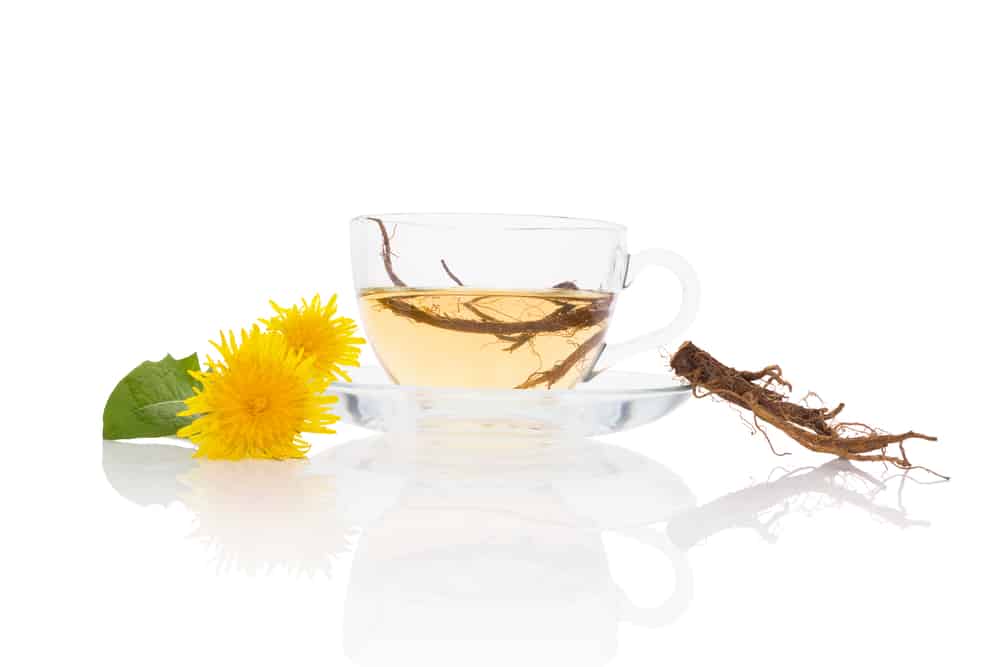 What is Dandelion Root?
What is Dandelion Root?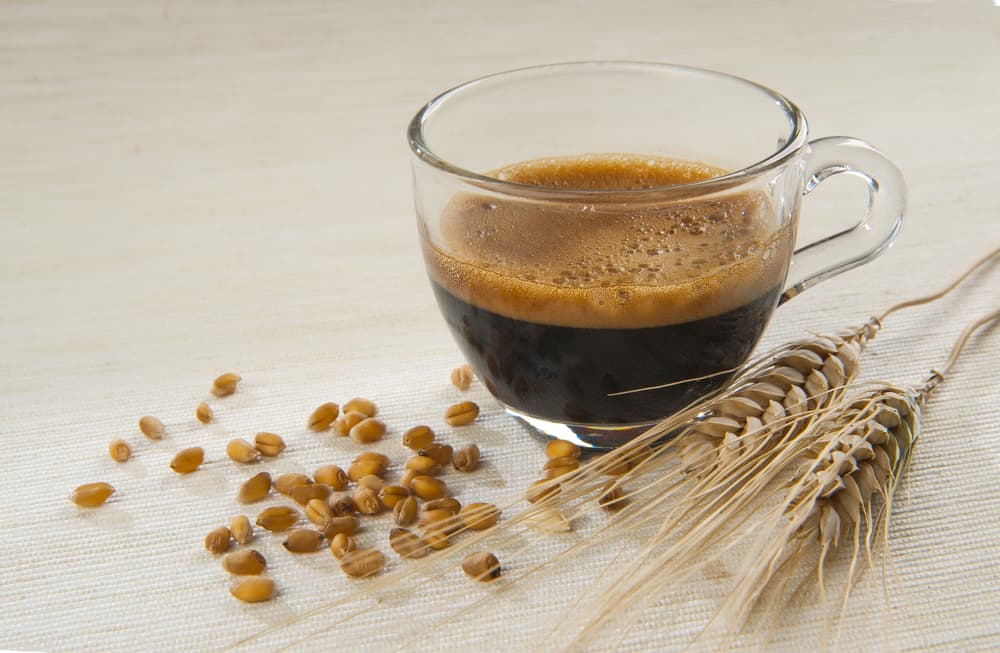 What is Barley Coffee?
What is Barley Coffee?